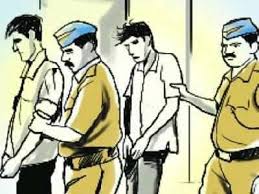In the context of the Code of Criminal Procedure (CrPC) in India, an “arrest” is the apprehension or restraint of a person’s liberty by legal authority. It is the act of taking a person into custody for the purpose of holding them to answer for a criminal offense.
The CrPC provides specific provisions and procedures that govern how arrests are to be carried out. The powers of the police in India are also primarily governed by the Code of Criminal Procedure (CrPC), 1973.
Certainly, let’s delve into more details about the powers of the police as per Section 41 and Section 46 of the Code of Criminal Procedure (CrPC):
Section 41 (Arrest with and without Warrant):
Section 41 of the CrPC empowers a police officer to arrest a person with or without a warrant. This power is based on the circumstances and the nature of the offense.
Arrest without a warrant: A police officer can arrest a person without a warrant if they have a reasonable belief that the person has committed a cognizable offense. Cognizable offenses are more serious crimes where the police have the authority to make an arrest without a warrant. Examples include murder, robbery, etc.
Arrest with a warrant: In other cases, where the offense is non-cognizable, a police officer can make an arrest only if they have a warrant issued by a magistrate. Non-cognizable offenses are generally less serious in nature.
Section 46 (How Arrest is Made):
Section 46 of the CrPC lays down the procedure for making an arrest. It emphasizes that the person being arrested should not be subjected to more restraint than is necessary to prevent their escape.
It states that the person arrested should not be subjected to unnecessary force or violence. The police officer must use reasonable force to effect the arrest, and the arrestee should not be subjected to inhumane treatment.
The person being arrested should also be informed of the grounds of their arrest, unless it’s impractical to do so. The person should be told why they are being arrested and brought before the magistrate without unnecessary delay.
These sections are crucial in safeguarding the rights of individuals during the arrest process and ensuring that arrests are made in a lawful and humane manner.The CrPC also outlines the rights and protections of the arrested person to prevent abuse of power and protect their fundamental rights. Police officers are also expected to follow these guidelines to protect the rights of the arrested person.

